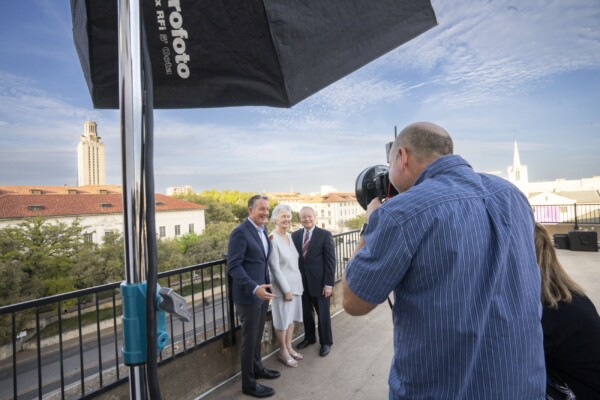Red Wine, Soap Operas, and Other Surprises Await Travelers in the Arab World
Despite unsettling headlines from the Middle East and North Africa, Professor Vijay Mahajan says consumer markets there are robust and thriving.
By Jeremy M. Simon

A glass of red wine. Bollywood brand ambassadors. Turkish soap operas. These may not be things you’d expect to find in the Middle East, but according to Texas McCombs Marketing Professor Vijay Mahajan, the Arab world has a way of surprising visitors.
Mahajan spent three years criss-crossing the region for his book, “The Arab World Unbound: Tapping into the Power of 350 Million Consumers.” His travels took him across 18 countries from 2008 to 2010. His experiences in the Arab world are the latest example of his ongoing passion for developing countries.
Mahajan’s earlier book, “The 86% Solution,” refers to the reality that 86 percent of the global population lives in developing countries — nations with gross domestic products of less than U.S. $10,000 per capita. Mahajan wanted to see how corporations and consumers actually operate in the region.
“There must be something more going on in these countries other than all the negative news we get from the media.”— Vijay Mahajan.
His hypothesis proved true. “This region is not what we think it is. It’s totally globally connected,” Mahajan said. As evidence of this point, Mahajan said he had almost no trouble finding red wine to drink, although locals were quick to point out they don’t consume it themselves, based on Islam’s prohibition of alcohol.

The region’s historic ties to India and South Asia were also evident, with many consumer companies using Bollywood stars as brand ambassadors. Meanwhile, television soap operas from Turkey, a non-Arab country, (such as “Noor,” which attracted a record 85 million Arab viewers for its final episode) are wildly popular. And the Arab world’s two largest advertising spenders are names familiar to Western shoppers — Unilever and Procter & Gamble.
Other companies may want to follow their lead. According to Mahajan, per-capita Arab household consumption tops that of both China and India. Still, companies that want to do business in the region should expect some challenges. “You have to have a lot of patience to do business” in the Arab world, Mahajan said. In Sudan, for example, Mahajan was unable to use his credit cards and was forced to carry cash, due to the United Nations sanctions on that country that limit financial transactions. And, with three different weekends across the Arab world, scheduling meetings can be a challenge.
That’s just one important detail visitors will need to be aware of. “When you go to developing countries, you have to realize that it’s not business as usual. It requires determination, it requires local knowledge,” Mahajan said. He shared other insights gained from his travels with students, faculty members, and business executives in remarks captured in this video:


